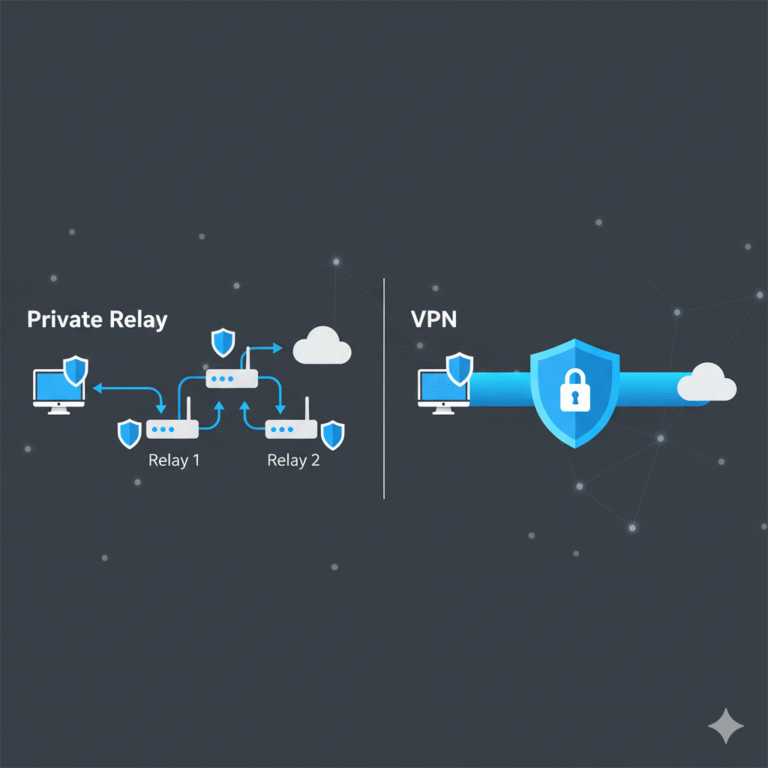FanDuel is one of the most popular online sports betting and daily fantasy platforms in the U.S. However, it isn’t available everywhere. Due to strict state-level gambling regulations, FanDuel blocks users from states (or countries) where online betting is restricted.
This leads many players to ask: “Can FanDuel detect VPN usage?” The short answer: Yes, FanDuel can usually detect when you’re using a VPN — and the risks can be serious.
In this article, we’ll cover how FanDuel detects VPNs, what risks you face if caught, and safe alternatives for accessing FanDuel in 2025.
🔎 How Does FanDuel Detect VPN Usage?
FanDuel uses several methods to identify VPN traffic:
- IP Address Blacklists – Popular VPN IP addresses are often flagged and blocked.
- Geolocation Checks – FanDuel compares your IP address with your GPS location (on mobile apps). If they don’t match, access is denied.
- Repetitive Logins – Logging in from multiple distant locations within short periods can trigger security alerts.
- Payment Verification – Deposits and withdrawals may require identity checks that reveal your true location.
This is why many users see “VPN detected” or “Location services mismatch” errors when trying to play on FanDuel.
👉 If you’re wondering whether using a VPN can bypass bans or restrictions, check out our guide on Can a VPN Bypass an IP Ban?
⚖️ Is It Legal to Use a VPN with FanDuel?
Using a VPN to access FanDuel in restricted states or outside the U.S. is against FanDuel’s Terms of Service.
- Legal Risks – While most users won’t face criminal charges, using FanDuel in a restricted state could violate local gambling laws.
- Account Risks – FanDuel can suspend or permanently ban your account, potentially freezing your winnings.
For example, many users also ask Can You Use FanDuel with a VPN? and Can I Use a VPN for FanDuel? — both highlight the importance of knowing where VPN use is permitted and where it isn’t.
🚨 Risks of Using a VPN on FanDuel
Here’s what you risk if you try to access FanDuel with a VPN:
- ❌ Account suspension or ban (loss of funds possible)
- ❌ Identity verification issues when withdrawing money
- ❌ Unreliable access due to blocked VPN IP addresses
- ❌ Possible legal consequences depending on your location
It’s similar to other platforms like PrizePicks or Warzone where VPN usage can result in suspensions or bans.
✅ Safe Alternatives to VPNs for FanDuel Access
If you want to play FanDuel without risking bans, here are safer options:
- Travel to a Legal State – FanDuel is fully legal in states like New Jersey, Pennsylvania, and Colorado. If you’re physically there, you can play without issues.
- Consider Legal Alternatives – Some states offer regulated platforms as substitutes.
- Wait for Expansion – FanDuel continues to expand into new states as legislation evolves.
For those looking for VPN-like privacy but without location spoofing, you might want to explore alternatives such as DNSCrypt or Encrypted DNS. These won’t bypass geo-blocks but can still protect your online activity.
🛡️ Which VPNs Work Best (If You Still Try)?
If you still choose to test a VPN with FanDuel (at your own risk), only premium VPNs with strong IP rotation stand a chance.
- NordVPN – Excellent speeds, strong obfuscation
- ExpressVPN – Great at bypassing restrictions, fast servers
- Surfshark – Unlimited devices, budget-friendly
- PIA (Private Internet Access) – Large server network, customizable security
- ProtonVPN – Strong privacy focus, free plan available
Still, success is never guaranteed — FanDuel constantly updates its detection methods. For a direct VPN comparison, check out AirVPN vs NordVPN: Which VPN Offers Better Security & Speed?
🌍 Related VPN Use Cases You Might Find Helpful
- How to Watch Jio Cinema in USA Without VPN – Easy Guide
- How to Bind qBittorrent to VPN for Secure Torrenting
- What Location to Put VPN for Unrestricted Chat GPT
- Can a VPN Bypass Parental Controls — Expert Guide
🔚 Final Verdict: Can FanDuel Detect VPNs?
Yes, FanDuel can detect VPN usage, and the risks outweigh the potential rewards. While some users may find temporary workarounds, most VPN IPs eventually get blocked. More importantly, using FanDuel outside legal jurisdictions can result in permanent account loss.
If you want a safer approach:
- Stick to playing in legal states,
- Use VPNs only for privacy, not bypassing gambling laws,
- Explore alternatives like DNSCrypt or wait until FanDuel expands.
For everyday privacy and streaming, however, a reliable VPN like ExpressVPN or NordVPN is still highly recommended.
FAQs
Does Ethernet bypass my VPN?
No. A VPN creates a virtual network interface and routing rules that encrypt selected traffic regardless of whether your physical link is Ethernet, Wi-Fi, or cellular. Bypass happens only if you use split tunneling or misconfigured routes. Check your default route and DNS after connecting to confirm full-tunnel operation.
Is a VPN faster over Ethernet than Wi-Fi?
Usually a bit steadier. Ethernet avoids wireless interference and can reduce latency/jitter, which helps UDP-based VPNs like WireGuard. But overall speed still depends on your ISP line, server distance, and encryption overhead—not the cable alone.
Will all wired devices be protected if I run the VPN on my router?
Yes. A router-level VPN tunnels traffic for every device connected via Ethernet and Wi-Fi, including smart TVs and consoles, provided the router supports VPN clients and has sufficient processing power.
Should I use TAP or TUN for Ethernet use?
Use TUN by default for routed IP and better performance. Choose TAP only if you need true Layer-2 bridging (broadcasts, non-IP protocols, or same-subnet behavior). TAP adds extra overhead by carrying full Ethernet frames.
Why does my VPN work on Wi-Fi but fail on Ethernet?
Common causes include NIC driver issues, Ethernet power-saving features, or conflicting routes. Update drivers, disable problematic NIC features temporarily, and verify that the default route points to the VPN interface when connected.
Can my ISP see I’m using a VPN on Ethernet?
Yes, ISPs generally can detect VPN use (server IP/port, encrypted traffic volume), but not your content in a full-tunnel. With split-tunnel, non-VPN traffic remains visible.
Does a VPN replace my firewall on wired networks?
No. A VPN encrypts traffic; it doesn’t inherently filter it. Keep OS and router firewalls enabled for inbound/outbound control.
Will WireGuard work over Ethernet without special ports?
Yes. WireGuard uses UDP (no fixed port). Ensure outbound UDP to your VPN server is allowed on your network or router.
Can I share a VPN connection from my laptop to a wired device?
Yes, via Internet Connection Sharing/bridge: laptop on Wi-Fi + VPN, then share to another device over Ethernet. Configuration depends on OS and VPN adapter (TAP/TUN).
Does Ethernet improve streaming or gaming with a VPN?
Typically, yes—wired stability reduces packet loss and jitter, which benefits real-time traffic through a VPN. Still, server choice, protocol (WireGuard vs OpenVPN), and router CPU remain major factors.



